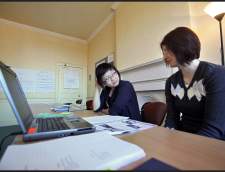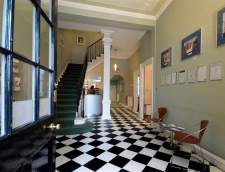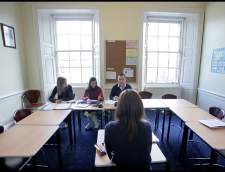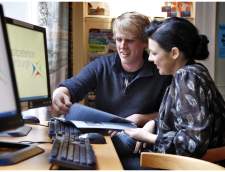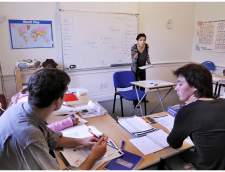Course description
Many employers and universities now require evidence of your English level. Cambridge Assessment English exams offer an important qualification for life; perfect for developing your confidence and enhancing your CV.
Cambridge Assessment English exam courses include a place on the next available exam, guidance on exam skills and strategies, essential language development, individual feedback, weekly individual coaching sessions and timed exam practice.
Course overview
Students train to gain experience and acquire the skills necessary to achieve a passing grade in their B2 First (FCE) exam.
Teachers coach students to achieve to the maximum of their potential, and set milestones and goals for each student, with constant evaluation. This sets the pace for each learner to surpass their academic expectations and achieve more than they thought possible.
Students sit rehearsal tests under exam conditions. These are repeated as required to build confidence and familiarity with the exam.
Small class sizes also allow for a large amount of individual coaching, which provides students with the security of the knowledge that they are as prepared as possible for their exam, and with confidence and familiarity in the exam format.
All students who successfully complete this course are eligible for a Course Certificate.
Homework tasks are set daily to allow learners to reflect on and consolidate what they have learned in the day, as well as prepare for the next day.
The course comprises a mixture of lessons and workshops, and these combine to help students develop and practise the skills and abilities that are necessary not only for success in their exam, but also in order to operate effectively in English, communicating with both native and non-native speakers of English in a variety of contexts. The morning lessons and workshops focus on building the linguistic and life skills required to do this. Key skills covered include, spoken performance, critical reading, pronunciation, grammar and vocabulary building.
In the afternoon, the emphasis shifts to how students can best apply these skills to exam tasks in order to fully show their abilities as a B2 level user of English, to achieve high marks in each of the papers of the exam. The strategies that students are coached in will help them to navigate exam tasks with ease, allowing them to approach the test with confidence in their abilities.
Homework assignments and mock exams are used to monitor students’ progress, and to highlight any areas that may need more intensive work.
Course content
The fundamentals of flexibility: for Use of English
In order to pass the B2 First (FCE) exam, students need to demonstrate flexibility in their use of grammatical structures and vocabulary. This module focuses on lexical areas such as wordbuilding, to help students understand the fundamental building blocks of the English language. Grammatical structures such as relative clauses and reported speech are commonly tested at B2 level, and students will work to develop flexibility and accuracy in their use.
Articulate with confidence: for the spoken test
In this module, students focus on the main areas which are assessed in the spoken paper. They are coached in pronunciation, and areas of discourse management such as signposting and turn-taking. Tutors will also focus on interactive communication skills, and the accurate use of grammar and vocabulary appropriate for the exam. Confidence building techniques are also taught, which will help students approach the exam with a positive mindset.
Reading for success: for the reading paper
Students are introduced to a variety of text types including magazine articles, fiction, and non-fiction prose. Tutors work with students to develop their ability to comprehend these extended passages while under time pressure. Skills developed include: working out the meaning of unknown words, following an extended narrative, and discerning a writer’s opinion. Students are equipped with strategies to help them deal with the types of questions used in the Cambridge: First exam.
Fundamental listening skills: for the listening paper
Text types used in the B2 First (FCE) exam include radio interviews, everyday interactions, and presentations. In this module, students are familiarised with the relevant text types, and given strategies and practice to help them achieve success in this paper. They develop the skills to allow them to follow and understand spoken texts in a range of contexts, such as understanding the gist of a text, working out meaning from context, and listening for discourse markers.
Expressing oneself through writing: for the written paper
In this module, students are introduced to, and practise producing the types of texts that are required in the exam. These include essays, reviews, articles, and letters. Tutors highlight what makes a good piece of writing for each of the required genres, and students are given detailed and specific feedback in order to help them produce better texts. There is a focus on brainstorming, planning, organisation, and effective use of grammar and vocabulary. Timed writing practices also help students to maximise their performance in the written exam.
Expected outcomes
By the end of this course, the student is expected to be able to
Express themselves clearly in both spoken and written English
Demonstrate flexibility in their use of language
Follow and comprehend a variety of written and spoken text types
Structure a piece of long form writing in a number of styles
Speak confidently with others in both one-to-one and two-to-one situations
Listening, Speaking, Pronunciation, Reading, Writing, Vocabulary and Grammar
Class schedule may change depending on availability and season.

















